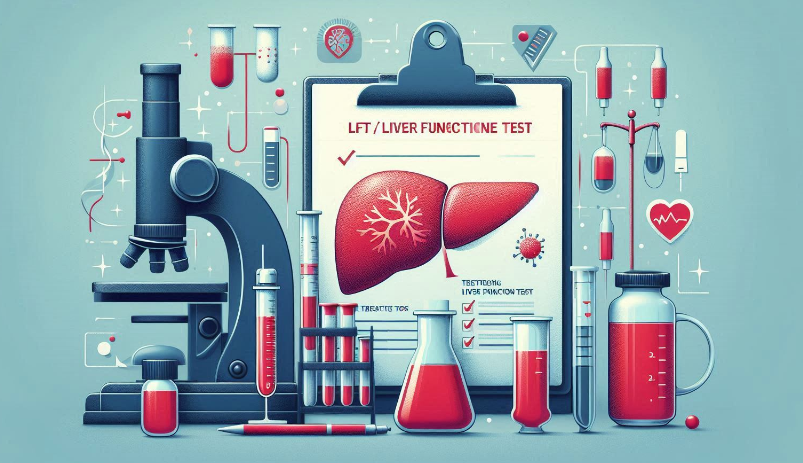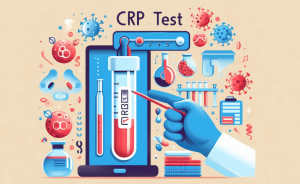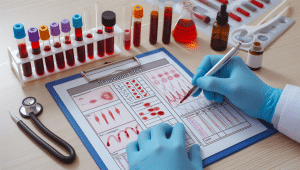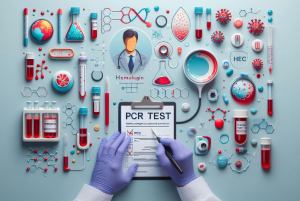What is a Liver Function Test?
A Liver Function Test (LFT) is a blood test that assesses the health and function of your liver. The liver plays numerous critical roles in the body, including filtering blood, producing bile, storing glucose, and metabolizing various substances. LFTs help evaluate how well the liver is performing these functions.
Why Do You Need a Liver Function Test?
LFTs may be recommended for various reasons, including:
- Screening for liver diseases: To detect potential liver problems, especially in individuals with risk factors such as excessive alcohol consumption, obesity, or family history of liver disease.
- Diagnosing liver diseases: To confirm a diagnosis of liver disease if symptoms like fatigue, jaundice, abdominal pain, or swelling occur.
- Monitoring liver function: To track the progression of liver disease or monitor the effectiveness of treatment.
- Evaluating medication side effects: Certain medications can affect liver function, so regular LFTs might be required.
What Does a Liver Function Test Measure?
LFTs typically involve a panel of several blood tests, each measuring different markers of liver function. Some common tests include:
- Alanine aminotransferase (ALT) and aspartate aminotransferase (AST): Enzymes found in liver cells. Elevated levels indicate liver damage or inflammation.
- Alkaline phosphatase (ALP): An enzyme present in the liver, bones, and other tissues. High levels might suggest liver disease or bile duct obstruction.
- Bilirubin: A waste product from the breakdown of red blood cells. Elevated levels can cause jaundice and indicate liver dysfunction or bile duct problems.
- Albumin and total protein: Proteins produced by the liver. Low levels can indicate liver damage or malnutrition.
- Gamma-glutamyl transferase (GGT): An enzyme linked to the liver and bile ducts. Elevated levels can suggest liver disease or bile duct obstruction.
- Prothrombin time (PT): A measure of blood clotting time. Prolonged PT can indicate impaired liver function.
Preparing for the Test
Usually, no special preparation is needed for LFTs. However:
- Fasting: Some labs might require fasting for 8-12 hours before the test, so check with your healthcare provider.
- Medications: Inform your doctor about any medications or supplements you’re taking, as some can affect the results.
Understanding the Results
The interpretation of LFT results depends on the specific tests included and individual factors. Generally:
- Elevated levels of liver enzymes (ALT, AST, ALP, GGT): Can indicate liver damage or inflammation.
- Elevated bilirubin: Can suggest liver dysfunction or bile duct obstruction.
- Low albumin or total protein: Might indicate impaired liver function or malnutrition.
- Prolonged PT: Can suggest problems with blood clotting due to liver dysfunction.
Your healthcare provider will carefully evaluate your results, considering your medical history and other factors, to determine the underlying cause of any abnormalities.
Risk Factors and Prevention
Several factors can increase your risk of developing liver diseases:
- Viral hepatitis: Infections like hepatitis B and C can damage the liver.
- Excessive alcohol consumption: Chronic alcohol abuse is a major cause of liver disease.
- Obesity: Fatty liver disease is associated with obesity.
- Certain medications: Some drugs can be toxic to the liver.
- Autoimmune diseases: Certain autoimmune conditions can affect the liver.
Prevention and management of liver diseases involve:
- Vaccination: Get vaccinated against hepatitis A and B.
- Limit alcohol consumption: Avoid excessive alcohol intake or abstain altogether.
- Maintain a healthy weight: Eat a balanced diet and exercise regularly to prevent obesity.
- Safe medication use: Follow your doctor’s instructions carefully and report any side effects.
- Managing underlying conditions: Treating any existing health conditions that can affect the liver is crucial.
Regular check-ups and following your healthcare provider’s advice are key to maintaining a healthy liver. If you have concerns about your liver health or experience any symptoms, consult your doctor promptly for appropriate evaluation and treatment.

 7351982473
7351982473











